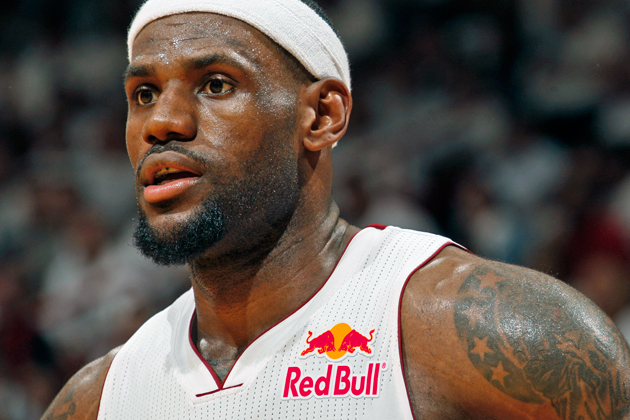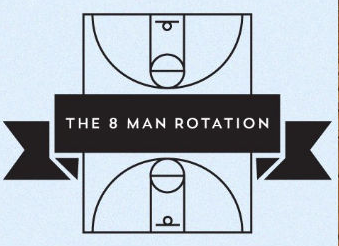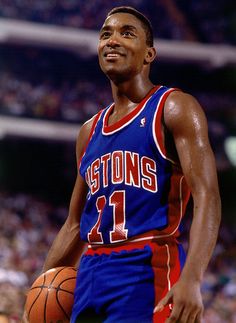A few days ago it was announced that starting with the 2017-2018 season, small corporate advertisements will be permitted on the front of NBA player jerseys. It is estimated that these ads, which initially will be limited in size to a patch measuring 2.5 x 2.5 inches, will generate anywhere from $50M to $150M annually in revenue for the league.
Since corporate ads on NBA jerseys are now absolutely going to happen, speculation about which companies will sponsor which teams has begun. And since I am all about the NBA and have lots of opinions about all things HR technology, I thought it would be fun to mash up these two worlds in one post.
How can such a mash up make sense you may be asking? How about if we pretend that only HR technology companies would be eligible for these NBA jersey sponsorship and then decide which HR tech company 'fits' each NBA team and match the NBA team to the HR tech company. 
Sounds fun, right? Here goes. And note, teams are listed in reverse order of their regular season finish in the season that just concluded a few days ago.
30. Philadelphia 76ers - Sponsor: SmartRecruiters. No reason other than the Sixers really, really need to find some better players. Linking a company with the name of SmartRecruiters to a team in need of smarter recruiting is a good fit.
29. Los Angeles Lakers - Sponsor: Aon Hewitt. Aon Hewitt has been no stranger to big-name jersey sponsorship in the past, (Manchester United), so I can see a scenario where Aon would jump into NBA jersey sponsorship with a big time team like the Lakers.
28. Brooklyn Nets - Sponsor: Infor. Infor is a New York City-based company, and I went to a Nets game this season in Brooklyn and sat near the Infor lounge (to which I was denied entry, by the way).
27. Phoenix Suns - Sponsor: PeopleDoc. This one falls into the camp of 'I think this company does some cool things, and they should be a part of the NBA sponsorship program'. The Suns play in a big market, have typically been a destination of choice for free agents, and seem like a fit for an HR tech company trying to build its name in the US market.
26. Minnesota Timberwolves - Sponsor: The Muse. The T-Wolves are a team on the rise, filled with tons of young talent. Good match for the kinds of things The Muse is all about as well, with their focus of helping organizations connect with up and coming talent.
25. New Orleans Pelicans - Sponsor: Namely. You may not know Namely, but the company has emerged in the last couple of years, raising funds and even advertising on cable TV channels like CNBC. I think that Namely would probably want to be a part of the NBA ad program, and nabbing the team with one of the league's best players Anthony Davis would be a coup.
24. New York Knicks - Sponsor: ADP. They are both huge, recognizable names in their domains, and have some shared geographical ties as ADP is headquartered in the greater NYC area. I can just 'see' and ADP logo on a Knicks jersey and it would feel like it would make sense.
23. Milwaukee Bucks- Sponsor: CareerBuilder. The Bucks are a team that many think could evolve and develop into a contender in the next few seasons, they just need one or two more pieces to be in the mix. Pairing up with a vendor that is all about making connections with talent seems like a good fit.
22. Denver Nuggets - Sponsor: iCIMS. Another HR tech company that it seems would have to be a part of the NBA program, iCIMS continues to grow and expand and the name and brand recognition that would come from being a NBA team sponsor seems to align with these growth plans.
21. Sacramento Kings - Sponsor: Globoforce. This one is more about what the Kings need and less about what the sponsor needs. The Kings have been a pretty dysfunctional organization for several years, and they could use a pairing with a vendor who focuses on making work better and more human.
20. Orlando Magic - Sponsor: Dice. I don't have a super reason behind this match, but I think Dice would have to be in the NBA mix somehow, so I will slot them in here with a Magic team that hopefully has better days ahead of them soon.
19. Utah Jazz - Sponsor: HireVue. While there are several HR tech companies in the Salt Lake City area, I just associate Hirevue with the area so strongly, they have to be the pick for the Jazz sponsorship. And nothing says 'You're in Utah' more than jazz music.
18. Washington Wizards - Sponsor: Equifax Workforce Solutions. It only makes sense that the team in the home of the US Federal Government be sponsored by an HR tech company that is synonymous with compliance - Equifax is a natural fit for the Wiz.
17. Houston Rockets - Sponsor: CivilSoft. Maybe a stretch by me, but I like the idea of pairing the team from America's oil and gas industry capital with one of the few, if not the only, HR tech companies that is HQ'ed in the Middle East.
16. Chicago Bulls - Sponsor: SAP. Great history, been around what seems like forever. Known all over the world, SAP seems like a match with the Bulls on all these levels.
15. Memphis Grizzlies - Sponsor: Kronos. The Grizz have long been known as a blue-collar, grind it out kind of team, so pairing them with Kronos, the biggest player in the time keeping space seems like a good fit.
14. Dallas Mavericks - Sponsor: Glassdoor. The Mavs owner Mark Cuban is famous for speaking his mind, and being incredibly open and transparent. Matches the Glassdoor ethos of making information about work and organizations more open and transparent for job seekers as well.
13. Detroit Pistons - Sponsor: WorkForce Software. The team from Detroit, the city long-associated with hard work needs to be paired with a sponsor coming from the same place. I like the match of a tech vendor with deep roots in the hourly workforce space with the Pistons.
12. Portland Trail Blazers - Sponsor: Virgin Pulse. Portland feels like the kind of place/team that is a fit with the vibe of well-being that Virgin Pulse is all about.
11. Indiana Pacers - Sponsor: Mercer. I like Mercer for the Pacers as they both give off a feel of solid, stable, trustworthiness. You don't have to worry that they know what they are doing/saying, they just put in a great effort every night.
10. Charlotte Hornets: Sponsor: SumTotal. This may be a reach, but the Hornets have had a really, really good season despite not having any 'star' players. They have been, in short, better than the sum of their parts. So matching them up with leading learning vendor SumTotal works.
9. Boston Celtics - Sponsor: IBM. The modern day Celts are not flashy, but continue to achieve at a high level and feature solid coaching and front-office leadership. Plus, there's decades of success in their legacy. Sounds in some ways like IBM to me.
8. Atlanta Hawks - Sponsor: Kinetix. Though not exactly a tech company, Kinetix lands the Hawks sponsorship by virtue of their Atlanta HQ and KD's affinity for Dennis 'German Rondo' Schroder.
7. Miami Heat - Sponsor: Ultimate Software. Ultimate is a South Florida company, so that is a fit. And I once heard Pat Riley speak at an Ultimate user conference.
6. Los Angeles Clippers - Sponsor: Cornerstone OnDemand. Cornerstone is an LA-area company and it makes sense that they would link up with one of the LA teams. The Clippers just seem a better fit to me than the Lakers.
5. Oklahoma City Thunder - Sponsor: Paychex. This one is simply because like Oklahoma City seems to be an unlikely place to be the home of a top-level NBA team, Rochester, NY, (home to Paychex and me too), is also a fairly unlikely place to be the home of a leading HR tech provider. But it is and this one seems like a solid fit.
4. Toronto Raptors - Sponsor: Ceridian. They have a pretty strong presence in Canada so it just makes sense for Ceridian to connect with the NBA's lone Canadian franchise.
3. Cleveland Cavaliers - Sponsor: Workday. No other reason than a high-profile team like the Cavs would have to be paired with a big-name sponsor, so Workday gets the nod here.
2. San Antonio Spurs - Sponsor: Indeed. The right for the Spurs was a little tough to come up with, but in the end I went with a pick that at least reminds me of the low-key, efficient, and fundamental way the Spurs play basketball - the job aggregation behemoth Indeed.
1. Golden State Warriors - Sponsor: Oracle. Kind of a no-brainer, since the Dubs play in Oracle arena. Once a team's home gets associated with a corporate brand, a really tight bond develops.
That's it, your guide to NBA jersey sponsorship, HR tech edition.
Disagree with any of the pairings? Hit me up in the comments.


 Steve
Steve



